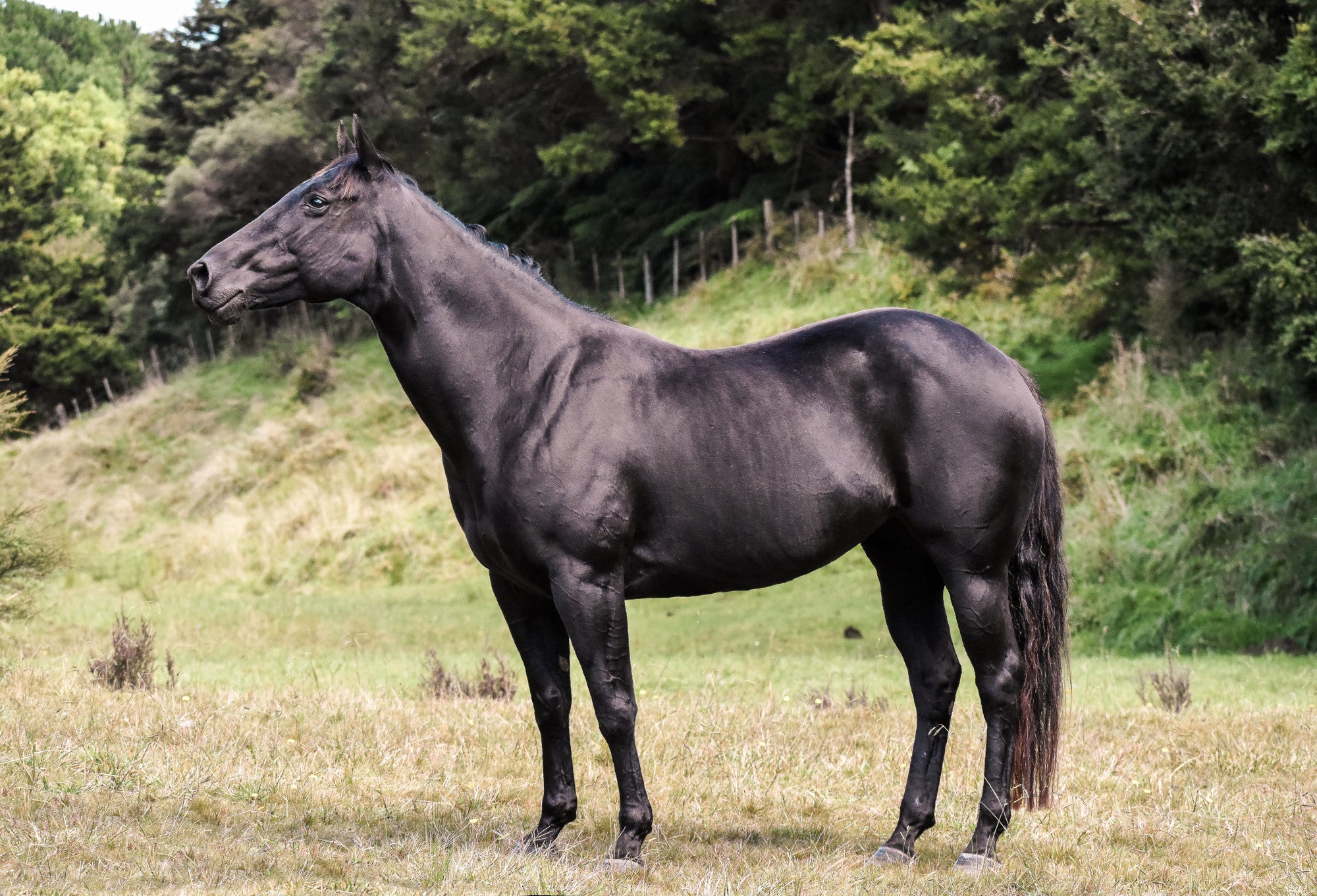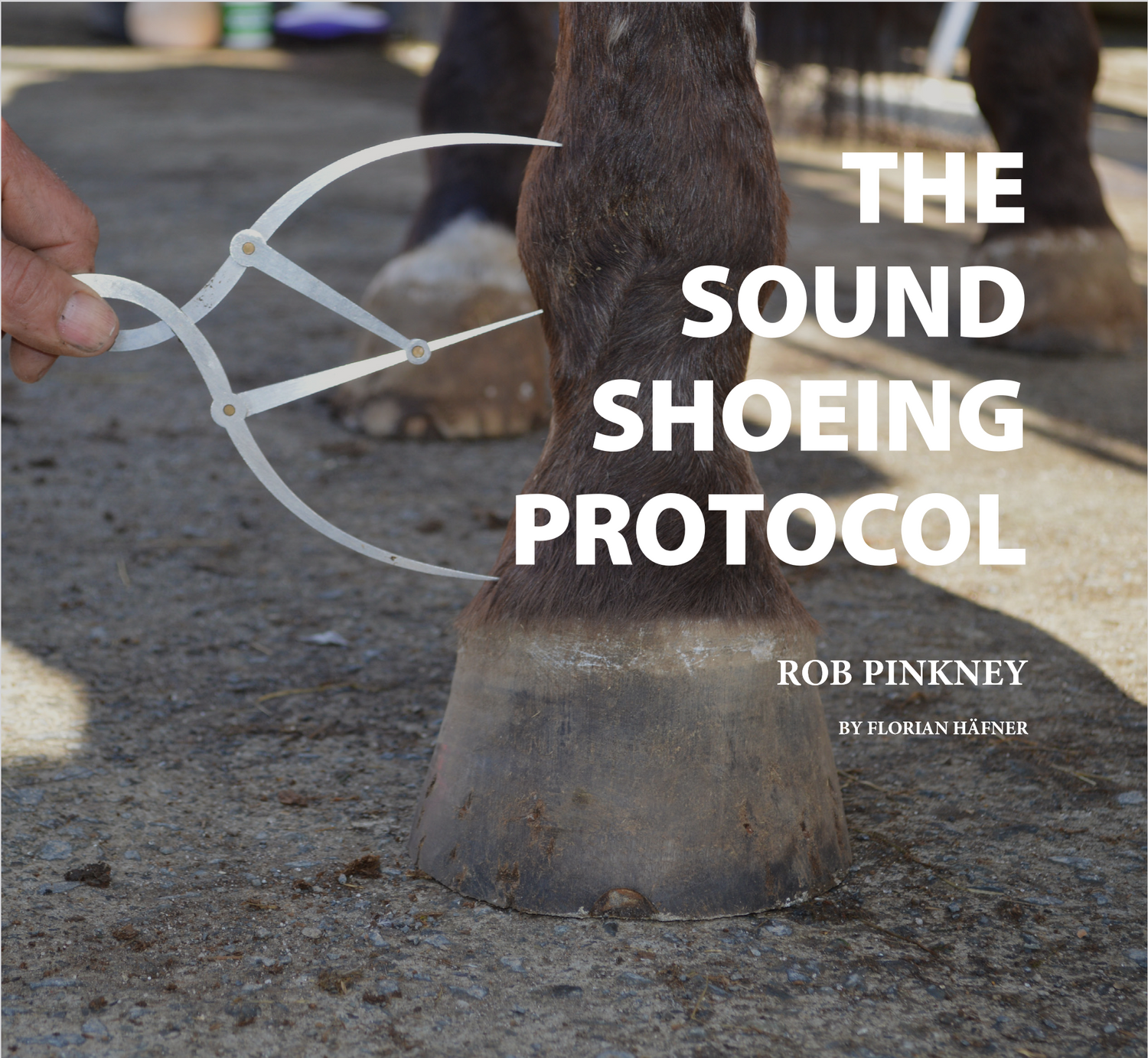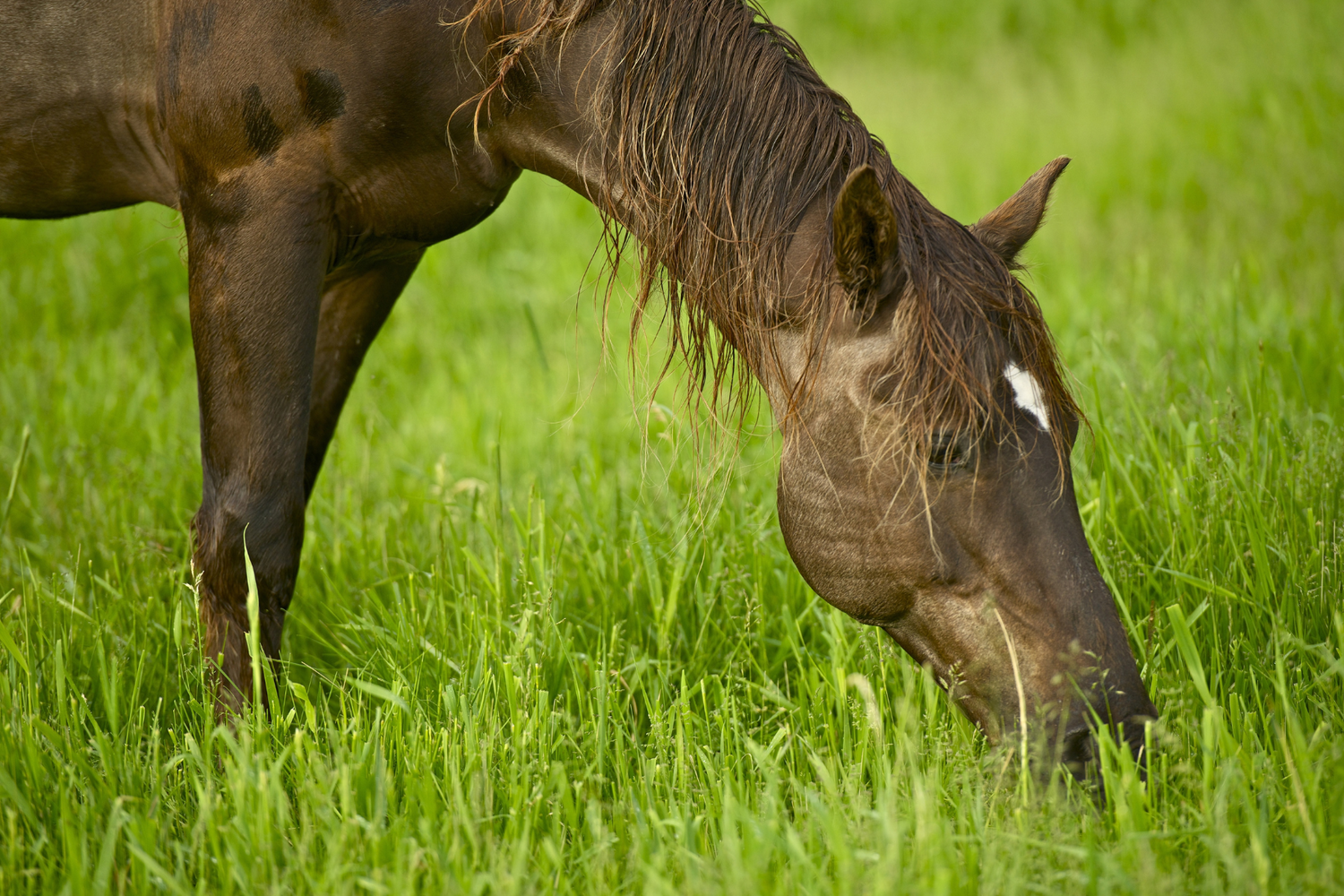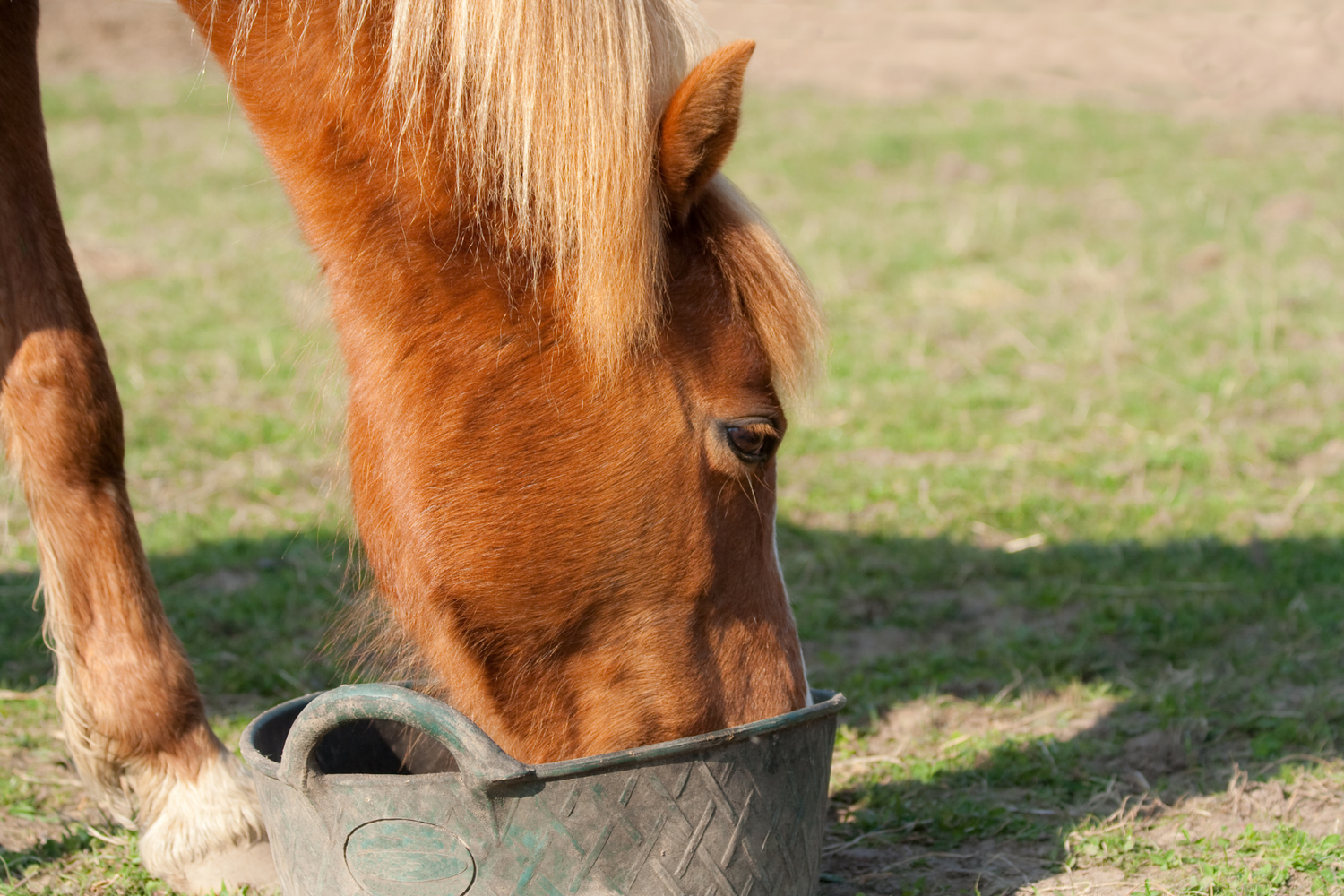A jet black horse is the stuff of childhood dreams and if you own a black horse, there's probably a little part of you that does a happy dance every time you admire their gleaming ebony coat. Black horses are not common and the special treat of knowing your horse has a rare quality is a thrill. Besides that, they simply look beautiful, in the same way a pure grey does - perhaps because a solid block colour allows the grace and beauty that all horses possess show more clearly.
Oddly, other equestrians seem to feel compelled to comment on the level of black your horse has achieved. Remembering that horses do not evaluate themselves on the hue of their hair, this seems strange. Complete strangers will stop you to say that your horse is 'almost a black', 'not quite a true black' or 'quite dark really' (this last said with thinly veiled pity that your equine friend has not quite made it).
Here is the same mare shown above, standing with her bay friend, contemplating her failure to stay ebony black during summer:
 Photo by Rachel Vercoe Photography. Cover photo by Violet Creations.
Photo by Rachel Vercoe Photography. Cover photo by Violet Creations.
Here's the thing.
Black horses naturally fade in the sun, just like anything else that starts off black.
The UV light breaks down the melanin in the hairs of their black coat, changing the colour to reddish brown or dark chocolate. This leads their humans to do a number of strange things including (mostly overseas) keeping them stabled permanently during summer. Imagine being a flight animal who lives to move, being handed a life sentence of confinement and being eternally denied summer sunshine, simply so you can look like a 'true black'.
It's easy to see how people can take the quest for an ebony black horse too far, and forget to enjoy these incredible creatures for all the other qualities they offer! But we have gathered some less extreme ways to enhance your horse's black coat.
Throw on a cotton sheet on hot days
As well as protecting your black horse's coat from UV rays, they will often be cooler with a turnout sheet on than without. If you've ever touched a black horse's back mid afternoon on a cracking New Zealand summer day, you will know it can be burning hot. One of our customers says that if she doesn't cover her black mare on the hottest days, she will find her horse's back covered in salt crystals where she has sweated out huge amounts of salt, which then need replacing.
Making sure your horse is in a field with good shade trees during summer is also important, for every horse.
Minimise sweat and dirt on black coats
Sweat is full of salt and this gritty layer dries out the horse's coat cuticles, exposing them more than usual to UV damage. If you have a black horse you may have noticed that even after being washed down they have a fainter brown outline of their saddle pad and bridle headpiece. This is the salt damage that occurs while you are riding!
To a lesser extent, mud and dirt can also dry out the cuticle of the hairs and expose the melanin to UV damage.
Giving your horse a thorough grooming will stimulate protective oils and also remove drying dirt and salt. Washing your horse is a great way to remove salty sweat, but...
Wash your black horse with the right products
Avoid cheap mass manufactured horse shampoos, harsh soaps or excessive washing as these will also dry out your horse's coat.
We recommend Eco Horse's natural spearmint scented Charcoal Shampoo for extra cleansing, followed by their peppermint and strawberry Hot Oil Wash... or you can combine the cleansing with a nourishing oil layer and try their Liquid Gold Oil Wash with jojoba, sweet almond and lemongrass oils to leave a light conditioning layer of oils on their coat.
A horse's black coat needs the right minerals to stay black
And by that we mean copper and zinc. A black horse who is low in copper or zinc will start to get fine reddish ends on their coat hairs and their coat will fade dramatically. This fading of their black coat will often happen even when they are protected from the sun.
Copper supports the manufacture of lighter melanin and darker melanin, while Zinc is necessary to produce the darkest shades of melanin. So any horse's coat can fade if they are deficient in copper but a zinc deficiency is most obvious in black horses.
Also, if your horse is getting a supplement or supplemented feed with high levels of magnesium or iron, these can compete with the copper and zinc for absorption and effectively block any effect on your horse's levels of these minerals. If you are feeding copper and zinc and not seeing any change, check the iron and magnesium levels in your horses diet.
To ensure that your horse gets a good level of copper (135mg per 80gm serve) and zinc (330mg per 80gm serve) as well as all the trace and essential minerals and vitamins that they need for great health, we recommend Poseidon Animal Health Digestive VM.
Add a little fat to their diet
A horse's coat hairs have a layer of fatty acids on the outside which seal the cuticle and help repel water. Adding an oil rich in omega 3 and 6 to your horse's diet - like Duwell's Flax Seed Oil - can give their coat extra shine, but also helps protect the hairs themselves.
Remember that genetics plays a part too.
The gene that controls a horse's black colour potential is the MC1R gene which governs the production of black pigment in a horse's coat.
- Homozygous black (E/E) horses will always produce black-based offspring
- A Horse with the genotype "E/e" (one black and one red allele) has a black base color but can produce either black or red base offspring.
Black ("E") is dominant to red ("e"), and the less red pigment a horse has, the blacker they will naturally be. If your horse has more red pigment their black may be closer to dark chocolate brown or you may find that no matter what you do they still fade in summer to a dark chocolate or even lighter.
This is why some black horse owners blithely say 'oh I do nothing and he stays jet black all year' while others do all they can and still have a horse that fades enough that you can see their black 'stockings' like you do on a bay horse.
If you're feeling frustrated
Remember how privileged you are to own a horse, and experience the amazing things you do with your beautiful horse. Enjoy their jet black new coat every spring and autumn, and the lovely hues it may become in between those seasons!





